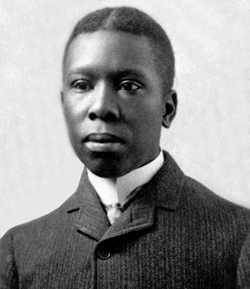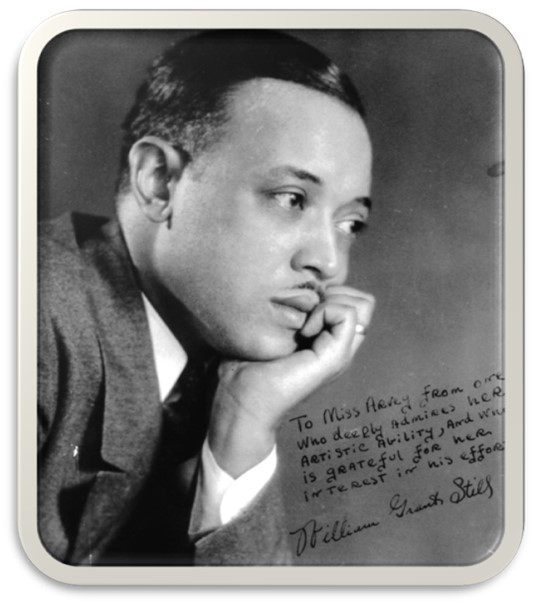
William Grant Still
William Grant Still. , known as the Dean of African American composers, was the first African American to have a symphony performed by a major orchestra. Under the baton of maestro Howard Hanson, the Rochester Symphony Orchestra performed his Afro-American Symphony (1930). Other notable works by him include four additional symphonies; several symphonic essays; extended pieces for orchestra, chorus, or soloists (e.g., And They Lynched Him on a Tree, 1940; Plain-Chant for America, 1941; and Lenox Avenue: Choreographic Street Scenes for Dancers or Narrator, 1936); art songs; solo instrumental music; chamber music; and seven operas, besides many other works.
After the premiere of the Afro-American Symphony, David Ciucevich comments that the work rapidly established itself in the repertoire, including the New York Philharmonic performance at Carnegie Hall and performances by thirty-four other American orchestras in the 1930s alone. Still succinctly described his goals in writing the work: "I knew I wanted to write a symphony; I knew that it had to be an American work; and I wanted to demonstrate how the blues, so often considered a lowly expression, could be elevated to the highest musical level." After the work's completion, Still appended verse by Paul Lawrence Dunbar to illuminate the mood of each movement. A deeply religious man, he inscribed the work (as he did each of his works) to God, "the source of all inspiration" (Ciucevich n.d.).

Paul Laurence Dunbar (1872–1906)
Each of the four movements that make up this work is prefaced with a title. The first movement is titled " Longing"; the second, "Sorrow"; the third, " Humor"; and the fourth, " Aspiration ".
Detailed description of each movement: Afro-American Symphony





